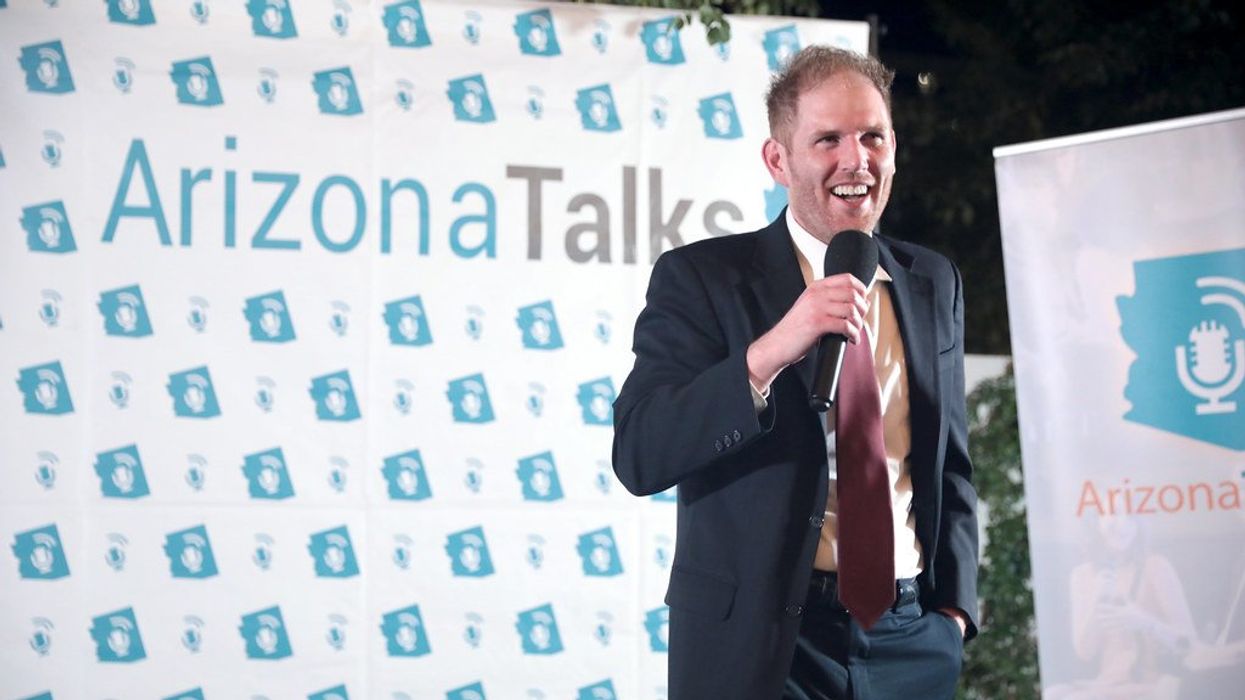Sexton is executive director of the Arizona Faith Network and an ordained pastor in the Christian Church (Disciples of Christ). Campbell is lead pastor at Desert Springs Bible Church and author of “ Disarming Leviathan: Loving Your Christian Nationalist Neighbor.”
As pastors in Arizona, we are concerned about the toxic polarization that has taken hold in our state and the weight it is adding to the souls of our neighbors. A video recently surfaced that showed violent rhetoric toward an Arizona public servant. It deserves the rebuke of Christians in our state — and all people of goodwill.
Maricopa County Republican Party official Shelby Busch told an audience that if Maricopa County Recorder Stephen Richer, a Republican, were in the room with them, she would “lynch him.” This was not only a call to violence. It is a term that carries a particularly disturbing connotation in the history of our country.
The troubling mention of 'Christian disagreements'
Violent rhetoric of this kind has no place in Maricopa County or anywhere in Arizona. With hate crimes on the rise and violent threats against public officials — especially election officials — at a dangerous high, this type of language is reprehensible and contrary to the teachings of Jesus.
Furthermore, Busch stated that there was a difference between Richer, who is Jewish, and other public officials because other officials can have “Christian disagreements.” To be clear: No matter what types of disagreements Arizonans have, our religious tradition calls us to resolve them peacefully. Disagreements should never be resolved through violence, regardless of their extent.
Beyond the danger of this call to violence, the rhetoric of “Christian disagreements” implies that Christians can treat non-Christians with less respect or dignity. This is contrary to the teaching of Jesus, who calls us to love our neighbor as ourselves.
We can't manipulate religion to divide people
Busch’s comments can also give the impression that non-Christians should not serve in public office. This could not be further from the truth.
While we believe in strongly expressing our Christian beliefs in the public square and advocating for policies that reflect our values, religious tests for officeholders are a violation of the First Amendment.
What’s more, we would embrace any politician who serves the public with integrity, honesty and fairness, regardless of their faith tradition.
To demand that public officials adhere to a single interpretation of a single religion is a betrayal of foundational American values.
Faith's tenets are love and compassion
The combative environment in Arizona politics stems largely from the lies about the 2020 election — and the demands that Arizona officials overturn the will of the people.
When individuals are willing to throw aside the results of a free and fair election — and silence the voices of the majority of their neighbors — these elements cultivate a dangerous environment for our democracy.
We are tired of this divisive violent rhetoric that manipulates our religious values, distorting the core tenets of compassion and understanding that define our faith.
As local church pastors, we invite our community to reject the path of violence and follow the way of Jesus, a path of peace, grace, love and truth. As the Apostle Paul wrote to Christians living under the Roman Empire (Romans 12:17-18), “Do not repay anyone evil for evil. Be careful to do what is right in the eyes of everyone. If it is possible, as far as it depends on you, live at peace with everyone.”



















Trump & Hegseth gave Mark Kelly a huge 2028 gift